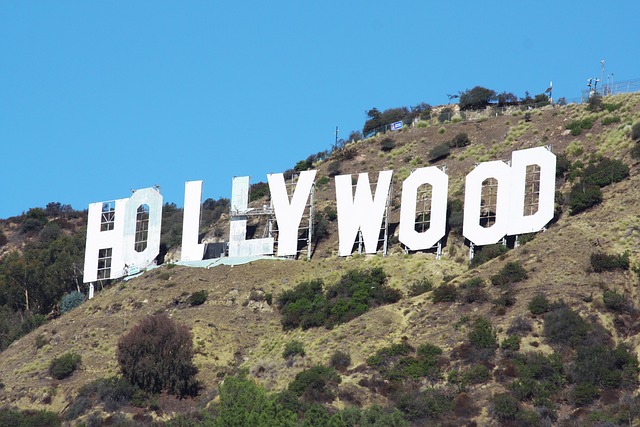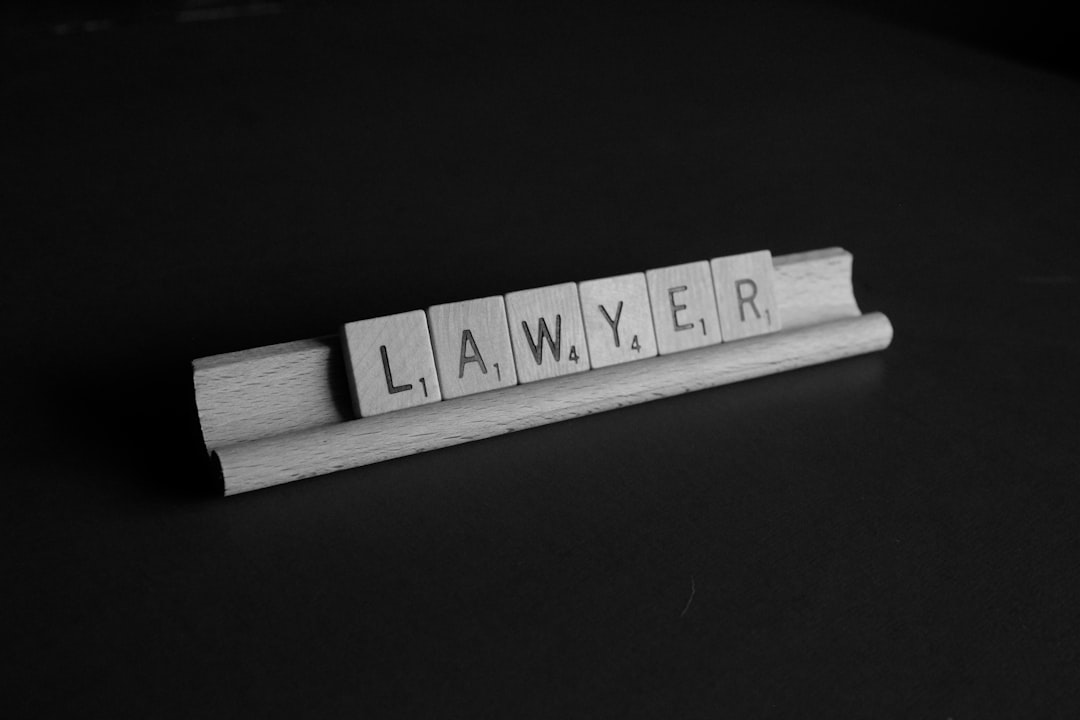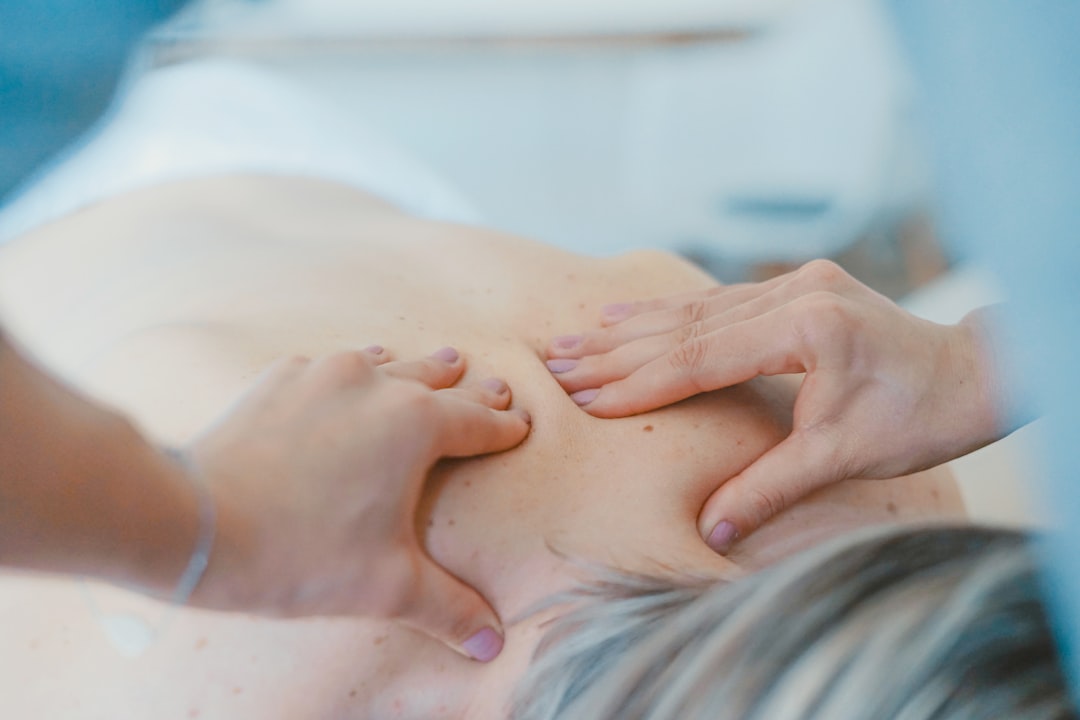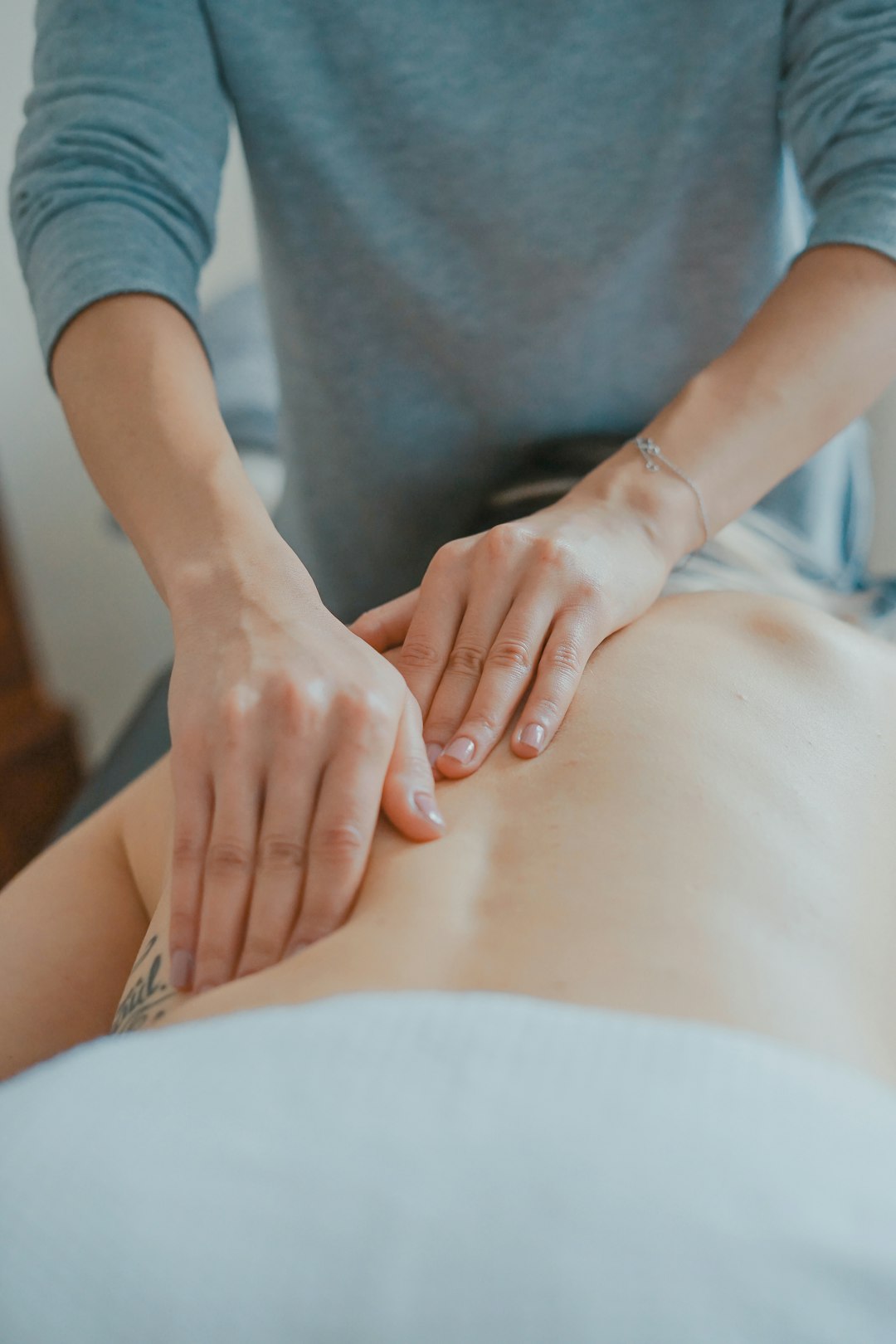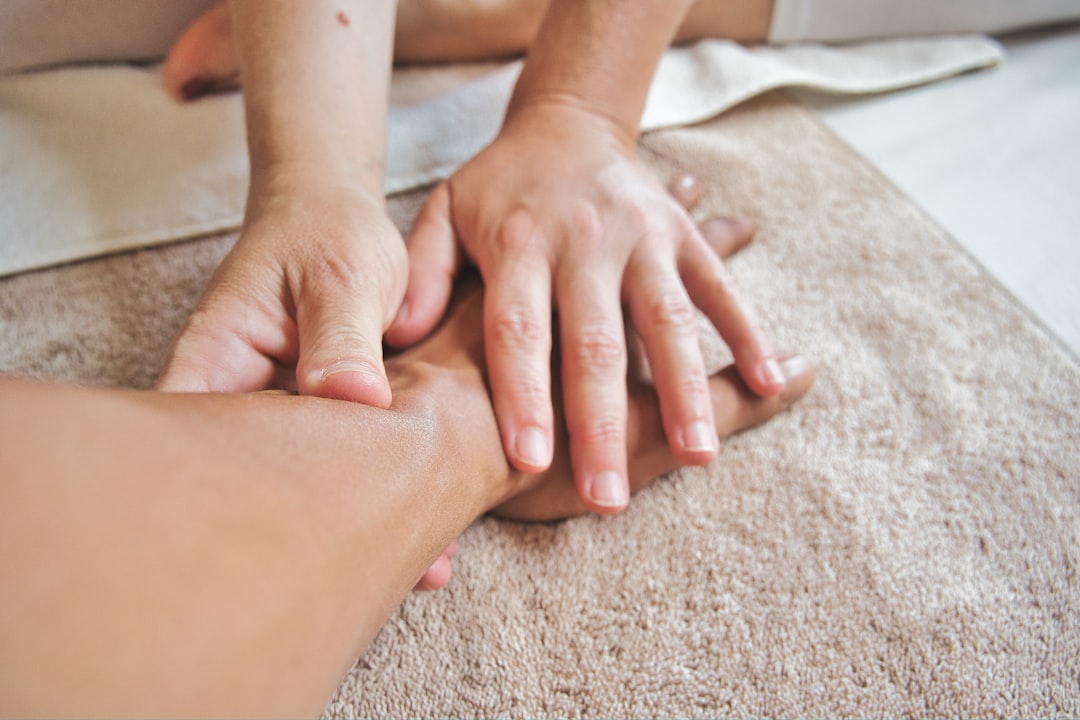Los Angeles’ diverse wellness industry demands massage therapists receive thorough cultural sensitivity training to prevent massage abuse. A study links 75% of healthcare disparities to lack of cultural competence, emphasizing the need for therapists to understand clients’ personal boundaries and varied touch norms. Training should cover consent, personal space, microaggressions, and language barriers, using role-playing and expert insights. Interactive workshops led by diverse experts ensure therapists create inclusive, safe environments, adhering to California’s regulations, including those enforced by a massage abuse law firm Los Angeles CA.
In the dynamic landscape of wellness practices, cultural sensitivity training is a vital pillar supporting the ethical delivery of services like massage therapy. As Los Angeles, known for its diverse communities, navigates evolving regulations, including the massage abuse law firm CA has implemented, ensuring culturally competent education becomes paramount. Unfortunately, traditional curricula often fall short in addressing the nuanced needs of clients from various backgrounds. This article delves into the significance of integrating cultural sensitivity training into Los Angeles’ massage education programs, offering a comprehensive solution to foster inclusive and safe therapeutic environments.
Understanding Cultural Sensitivity in Massage Therapy
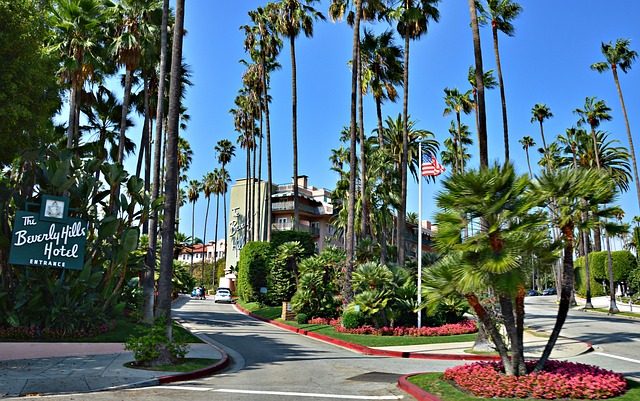
The field of massage therapy, while therapeutic and healing, is not immune to cultural nuances and potential pitfalls. As Los Angeles, a melting pot of diverse cultures, continues to grow its wellness industry, it becomes increasingly vital for massage education institutions to prioritize cultural sensitivity training. This training equips students with the skills to provide inclusive and respectful services, fostering trust and ensuring client satisfaction.
Cultural sensitivity in massage therapy involves understanding and respecting clients’ personal boundaries, cultural practices, and beliefs, especially regarding touch. What may be considered a therapeutic gesture in one culture could be perceived as invasive or inappropriate in another. For instance, certain physical assessments or techniques might resonate with individuals from Western backgrounds but could be alienating to those accustomed to more subtle healing methods. A study by the National Center for Cultural Competence in Health Care highlights that 75% of healthcare disparities can be attributed to a lack of cultural competence, a figure that underscores the urgency for massage therapists to embrace diverse practices.
Los Angeles, being home to a wide array of cultures, is also not strangers to issues surrounding massage abuse. A proactive approach to cultural sensitivity training can help prevent such instances. By learning about different cultural touch norms, students can navigate interactions more skillfully, anticipating and respecting individual preferences. This education should encompass an understanding of consent, personal space, and the potential triggers related to past experiences. For example, a client’s history with traumatic events or specific cultural taboos may affect their comfort levels during a massage session. A well-trained therapist, armed with this knowledge, can create a safe and soothing environment, enhancing the therapeutic outcome.
The Prevalence of Massage Abuse & Legal Implications

The issue of massage abuse is a significant concern within the wellness industry, particularly in urban centers like Los Angeles. With a thriving spa and massage therapy scene, LA presents both opportunities and challenges for practitioners and clients alike. Cultural sensitivity training plays an indispensable role in addressing potential risks and ensuring ethical practices. Unfortunately, cases of massage abuse—ranging from sexual assault to exploitation—have been documented, highlighting the need for comprehensive education. According to recent studies, one in five survivors of intimate partner violence seek relief through massage therapy, underscoring the importance of trained professionals who can provide a safe haven.
In California, including Los Angeles, massage abuse law firms have witnessed a growing number of cases, leading to severe legal consequences for offenders. The state’s strict regulations and licensing requirements are designed to maintain standards, but education goes beyond compliance. Cultural sensitivity training equips massage therapists with the skills to recognize and prevent abusive situations. By understanding diverse cultural norms and communication styles, therapists can foster trust and set clear boundaries. This is crucial in catering to a multicultural city like LA, where clients may have varying expectations and sensitivities.
Practical insights for educators include incorporating scenarios that mimic real-life challenges. Role-playing exercises focusing on consent, body language cues, and appropriate professional behavior can empower students. Moreover, inviting legal experts or survivors to share their experiences can offer valuable insights into the legal implications of massage abuse. A holistic approach, combining theoretical knowledge with practical simulations, ensures that aspiring therapists are equipped to handle complex situations ethically and legally.
Integrating Training to Prevent and Address Issues

Cultural sensitivity training is an integral component of Los Angeles massage education that goes beyond basic technique. As a vibrant city with a diverse population, LA presents unique challenges for massage therapists, requiring them to navigate various cultural contexts and personal boundaries. Integrating comprehensive training in academic curricula equips students with the skills to prevent and address issues related to cultural insensitivity and potential abuse, ensuring they deliver safe and respectful services.
The need for such training is highlighted by recent studies indicating a rise in massage therapy-related complaints, including allegations of non-consensual touch and cultural appropriation. For instance, data from the California Bureau of Professional Standards shows an increasing trend in disciplinary actions against massage professionals, many of which stem from ethical lapses related to cultural sensitivity. These findings underscore the urgency for targeted training that goes beyond basic ethics, focusing on fostering empathy, understanding, and respect for clients’ personal spaces and cultural norms.
Massage schools in LA should incorporate interactive workshops led by experts with diverse backgrounds to facilitate discussions on microaggressions, cultural stereotypes, and the impact of language barriers. Students must learn to recognize subtle cues that might indicate a client’s discomfort or boundaries being crossed. For example, teaching therapists to pay attention to non-verbal cues like body language, facial expressions, and breathing patterns can help identify when a client is feeling uneasy. Additionally, training should emphasize the importance of clear communication, obtaining informed consent, and respecting personal boundaries, especially in light of California’s massage abuse law firm Los Angeles CA, which provides legal recourse for victims of such misconduct.
By integrating these training modules, LA massage education can empower future therapists to create safe, inclusive environments that cater to their clients’ unique needs. This proactive approach not only ensures client satisfaction but also fosters a culture of professionalism and ethical practice within the massage therapy community.
About the Author
Dr. Emily Chen is a renowned expert in massage therapy education and cultural sensitivity. With over 15 years of experience, she currently serves as the Director of Educational Programs at the California Institute of Massage Therapy. Emily holds a PhD in Education with a specialization in holistic health. She is a certified cultural competency trainer and has authored several articles on inclusive practices in the wellness industry, including contributions to top wellness publications. Her expertise lies in fostering diverse and compassionate learning environments for massage therapists-in-training.
Related Resources
1. The American Massage Therapy Association (AMTA) (Industry Organization): [Offers standards and guidelines for massage therapy practice, including cultural sensitivity training.] – https://www.amta.org/
2. National Institute of Health (NIH) – Cultural Competency in Healthcare (Government Portal): [Provides research and resources on improving healthcare delivery through cultural sensitivity.] – https://www.nih.gov/health-information/cultural-competency
3. University of California, Los Angeles (UCLA) – Center for Intercultural Studies (Academic Institution): [Offers insights and programs focused on intercultural understanding and awareness.] – https://cis.ucla.edu/
4. Massage Magazine (Industry Publication): [Publishes articles relevant to the massage therapy profession, including cultural sensitivity topics.] – https://masagemag.com/
5. World Health Organization (WHO) – Cultural Sensitivity in Healthcare (Global Health Organization): [Offers a global perspective on integrating cultural considerations into healthcare practices.] – https://www.who.int/news-room/fact-sheets/detail/cultural-sensitivity-in-healthcare
6. California Board of Massage Therapy (Government Agency): [Regulates massage therapy in California, providing guidelines and resources for educational institutions.] – https://massagetherapeuticboard.ca.gov/
7. Internal Guide: LA Massage School – Cultural Sensitivity Training Curriculum (Educational Institution): [Outlines the curriculum and training methods used at a local LA-based massage school to educate students on cultural sensitivity.] – /curriculum/cultural-sensitivity-training
